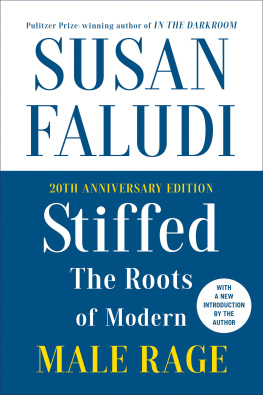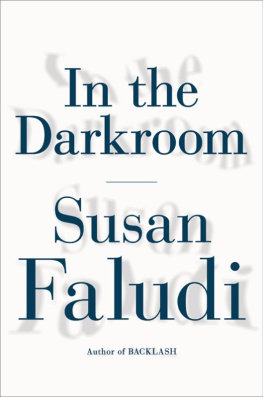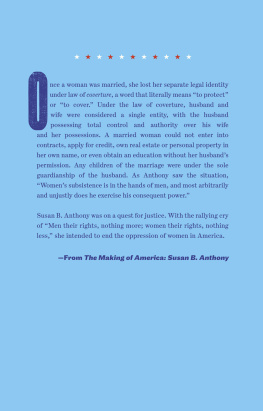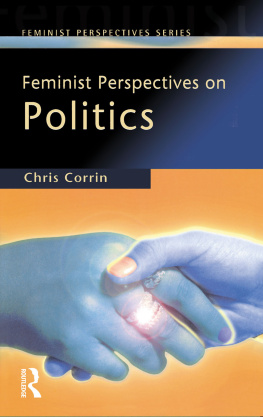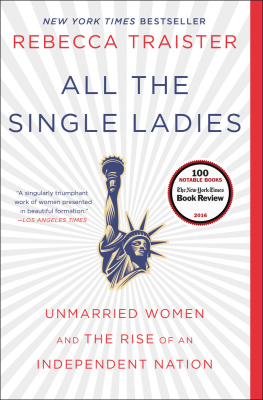Contents
Guide
Australia
HarperCollins Publishers Australia Pty. Ltd.
Level 13, 201 Elizabeth Street
Sydney, NSW 2000, Australia
www.harpercollins.com.au
Canada
HarperCollins Publishers Ltd
Bay Adelaide Centre, East Tower
22 Adelaide Street West, 41st Floor
Toronto, Ontario, M5H 4E3
www.harpercollins.ca
India
HarperCollins India
A 75, Sector 57
Noida
Uttar Pradesh 201 301
www.harpercollins.co.in
New Zealand
HarperCollins Publishers New Zealand
Unit D1, 63 Apollo Drive
Rosedale 0632
Auckland, New Zealand
www.harpercollins.co.nz
United Kingdom
HarperCollins Publishers Ltd.
1 London Bridge Street
London SE1 9GF, UK
www.harpercollins.co.uk
United States
HarperCollins Publishers Inc.
195 Broadway
New York, NY 10007
www.harpercollins.com
SUSAN FALUDI is a Pulitzer Prizewinning journalist and the author of In the Darkroom, The Terror Dream, Stiffed, and Backlash, which won the National Book Critics Circle Award for nonfiction. A former reporter for the Wall Street Journal, she has written for the New York Times, the New Yorker, Harpers, and the Baffler, among other publications.
Discover great authors, exclusive offers, and more at hc.com.
T HEY SAY MEN DON T COMMUNICATE , but the many eloquent men who were willing to speak to me for this book prove that a myth. My greatest debt is to them, for having the candor and courage to put their individual struggles into words.
The idea for this book began to take shape six years ago, during a John S. Knight Fellowship at Stanford University, and Im particularly grateful to American studies scholar Jay Fliegelman, whose invented-on-the-spot tutorial on masculinity literature got me under way. Further down the road, I enjoyed the support of editors at The New Yorker, DoubleTake, Esquire, and LA Weekly, who published my early forays through embattled male territory.
My literary agent, Sandra Dijkstra, has been, as always, a source of much encouragement and an indefatigable defender. For assistance early on, I would like to thank Amy Leonard, Deborah Clark, and Jane Loranger. I am especially grateful to Ben Ehrenreich, whose meticulous fact-checking in the final stages spared me untold embarrassment. Religion scholar Paul Boyer, historian Christian Appy, and sociologist Todd Gitlin generously read drafts of chapters related to their fields and offered helpful advice. The book is graced with Jane Paleceks elegant design for the cover and interior.
William Morrow publisher Michael Murphy took this book under his wing and has been a generous and ever-on-call advocate. Also at Morrow, Id like to thank Lisa Queen and Sharyn Rosenblum. My appreciation goes to Lynn Goldberg, for understanding the book and launching it into the world.
For aid and counsel, kindnesses small and large, I would also like to thank Sue Horton, Judy Sloan, Alyce LaViolette, Kevin King, Sandy Faulkner, Bob Black, Michael Bilton, Shirley Judd, Ira Levine, Tom Wright, Jonathan Kirsch, Larry Zerner, Susan Grode, Steve Oney, Madeline Stuart, Liz Rymer, Dick Rymer, Callie Becker, Laura Pappas, Rob Faludi, and Marilyn Faludi.
There are still a few great editors in publishing, and I was blessed with the best, Tom Engelhardt, whose careful and caring editing has been invaluable. Finally, this book would not have been written without the nurturance, wisdom, and love of one good man, Russ Rymer.
In the Darkroom
Backlash: The Undeclared War Against American Women
The Terror Dream: Myth and Misogyny in an Insecure America
W HEN I LISTEN TO THE sons born after World War II, born to the fathers who won that war, I sometimes find myself in a reverie, conjured out of my own recollections and theirs. The more men I talk to, the more detailed this imagined story becomes. It is the story of a boy in bed pretending to sleep, waiting for his father. Tonight, the father has promised to reveal to the son a miraculous inheritance: the transit of an artificial star.
The door opens, and the hall light streams in, casting a cutout shadow man across the bedroom floor. For a moment, from the boys vantage point, his father seems almost unreal, a flattened spectral image. Then the shadow moves forward into the room, hustling the boy into a jacket over his cowboy pajamas, arming him with a big chrome flashlight, digging out his Keds from under a heap of clothes in the closet. The boy pulls the coat around him and, even though it is August, feels wrapped in a delicious and unexpected comfort, enveloped in his fathers hushed exuberance.
Earlier that evening, while his mother was busy scraping dishes in the kitchen, the boy and his father had hunched conspiratorially over the latest issue of Life magazine, the father pointing out features of the fantastical orb they were to observe, just the two of them, at an hour later than the boy had ever been allowed to be awake: Ten stories high! Seven times as bright as the North Star! His father said the satellite was really more of a balloon, a satelloon, and told him how it had been clamped down with huge clothespins and folded into an egg-shaped magnesium sphere for the launch; how the shell had hatched open, right on time, when it reached its orbit, a mighty man-made explosion giving birth to a big, shiny beach ball called Echo. His father had said Echos skin was half the thickness of the cellophane wrap on his cigarette pack; a meteorite could puncture it, even the suns rays might disturb its course.It could collapse at any moment! And it was this that would linger in the boys mind: that something so powerful could be so fragile.
The boy, clutching his flashlight and his Davy Crockett cap, races after his father along the shadowy upper hallway past the bedroom where his mother lies sleeping, then down the stairs and through the living room where the blank eye of the new Philco TV gazes coolly upon their passage. On a sticky July evening a month ago, he had sat in front of the Philco with his parents and watched a young presidential nominee on a confetti-strewn proscenium turn his face ceremonially to the west and call on the young men of a new generation to join a race for the mastery of the sky. It was up to boys like him, the man had said, to save not just the Earth but the far side of space from a Communism that had already penetrated into Asia.
He follows his father through the kitchen, the Frigidaire thrumming in the darkness, out the screen door and down the steps, where the aluminum patio furniture and the shiny globe of the barbecue grill phosphoresce like flying saucers come in for a landing. They are on the black-green quarter acre of clipped lawn now. His father bends, spreading his old navy peacoat like a blanket on the buzz-cut grass. The man and the boy in his raccoon cap kneel on the scratchy wool, two pioneers of the crabgrass prairie, and then the father snaps off the boys flashlight. All the familiar moorings drop away and they are swept up, a father and a son, into the bright sky. The father touches the boys shoulder and directs his vision to a faraway glimmer. The boy looks up, knowing that his father is pointing out more than just an object; it is a beacon of pride and secret knowledge, a paternal gift rocketing him into a future his father has helped to launch. At first, all he sees is the blanket of stars spreading out cold and vast between the trees. But then, there it is at last, a pinpoint of light crawling across the firmament, infinitesimally tiny, impossibly bright.
I knew this boy. Like everyone else who grew up in the late 1950s and early 1960s, I knew dozens of him. He was Bobby on the corner, who roamed the neighborhood with his cap gun and holster, terrorizing girls and household pets. He was Ronnie, who wore his Superman suit way past Halloween and, sure he could fly, leaped from his living-room stairs one day and cracked his head open on the foyer linoleum. He was Frankie, who blew off part of his pinkie while trying to ignite a miniature rocket in the schoolyard. Even if he wasnt brought out into the backyard and shown an American satellite glinting in the sky, he was introduced to the same promise and the same vision, and by such a father. The fathers of that era often seemed remote, as unreal as those perfect dads on television, though not intentionally so. They were just fathers in the era after the war, living in brand-new suburbs with wives and children they barely knew, working at brand-new jobs on brand-new corporate campuses, miles from their brand-new aluminum-sided houses. Which is to say that the life of the postwar father was altogether too newly out of the box for him to understand it, much less explain it to his son.
Next page
